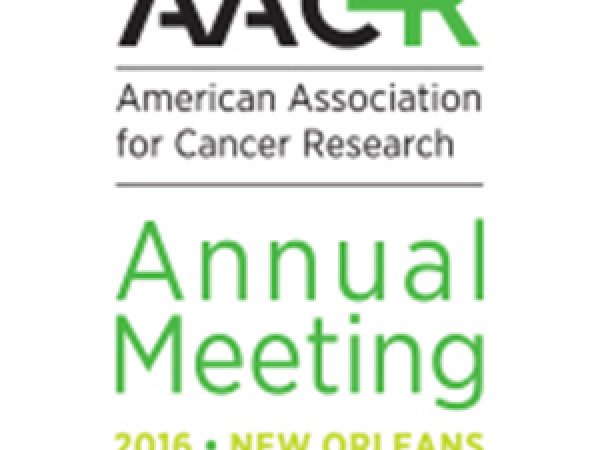Do Patients With Cancer Have Prolonged Viral Shedding Following Infection With SARS-CoV-2?
Numerous studies have shown that individuals with cancer fare worse than the general population if they contract COVID-19, with higher rates of hospitalization, severe disease, and death. Studies from recent months highlight another new challenge: Patients with cancer may shed SARS-CoV-2, the causative virus of COVID-19, for a prolonged period of time.
A case report published in Cell describes a female patient with chronic lymphocytic leukemia and acquired hypogammaglobulinemia (a condition characterized by low levels of immunoglobulins, or antibodies) who had asymptomatic COVID-19. The patient shed infectious SARS-CoV-2 up to 70 days after her COVID-19 diagnosis, and genomic and subgenomic viral RNA could be isolated up to 105 days after diagnosis.

A correspondence published in New England Journal of Medicine details viral shedding in 20 immunocompromised patients who had COVID-19. Of these patients, 18 had received a hematopoietic stem cell transplant or chimeric antigen receptor (CAR) T-cell therapy, and two patients had lymphoma; 15 patients were receiving active treatment or chemotherapy, and 11 patients had severe COVID-19. Following the onset of symptoms, the study authors found that viral RNA could be detected for up to 78 days (with an interquartile range of 24 to 64 days).
Building on these reports, at the recent AACR Virtual Meeting: COVID-19 and Cancer, the final keynote presentation, delivered by Laurence Zitvogel, MD, PhD, from Gustave Roussy in Villejuif, France, focused on long-term SARS-CoV-2 viral shedding among patients with cancer.
Studies from North America and Europe found increased viral shedding in patients with cancer
To better understand if patients with cancer can experience prolonged viral shedding following infection with SARS-CoV-2, Zitvogel and colleagues analyzed data from three prospective cohorts in France and Canada comprising nearly 1,000 individuals. Roughly 50 percent of the participants had cancer. In all three cohorts, the researchers found that patients with cancer had longer SARS CoV-2 viral shedding compared with cancer-free individuals.
Zitvogel noted that prolonged viral shedding was more frequently observed in patients with hematological malignancies and in those with advanced or metastatic disease. Further, patients with cancer with asymptomatic COVID-19 could also experience prolonged viral shedding.
Characteristics of prolonged viral shedders
Among patients with cancer, those who experienced prolonged viral shedding were more likely to develop moderate or severe COVID-19 symptoms compared with acute viral carriers, Zitvogel said. This phenomenon was more frequently observed among patients with hematological or metastatic malignancies.
Further, among patients with cancer, those with a drop in circulating lymphocytes at diagnosis of COVID-19 were more likely to experience prolonged viral shedding of the SARS-CoV-2 virus and more likely to have increased viral load. Zitvogel noted that, in some cases, patients lost more than 70 percent of their lymphocyte counts during infection. Virus-associated lymphopenia was predictive of overall survival among patients with cancer.
Long-term viral shedders were more likely to display hallmarks of severe COVID-19, Zitvogel said, such as the recirculation of immature neutrophils, the accumulation of exhausted CD8 T cells, and the activation of T follicular helper cells, compared with acute viral shedders. The bacterial taxonomic profile was also markedly different in long-term viral shedders compared with short-term viral shedders. Selective bacterial enrichment may partly explain the incidence of virus-induced lymphopenia among long-term viral shedders, Zitvogel noted.
Consequences of prolonged viral shedding
Patients with cancer, especially those with hematological malignancies or metastatic disease, may be at higher risk for severe COVID-19 because the virus exacerbates their lymphopenia through a variety of different mechanisms, Zitvogel said. This, in turn, perpetuates viral replication, increases the viral load, and impedes the elimination of the virus, which can ultimately result in worse outcomes.
Beyond being potentially associated with severe COVID-19, prolonged shedding of viable SARS-CoV-2 virus would allow an individual to transmit the disease for an extended period of time. This potentially increased period of infectiousness suggests that COVID-19 isolation precautions may need to be revised for immunocompromised individuals, note the authors of the correspondence cited above.
Vaccinations against the SARS-CoV-2 virus are an important lifesaving measure for immunocompromised patients, including patients with cancer and cancer survivors. As such, the AACR recently spearheaded a letter to President Biden and leaders of state health departments asking that patients with cancer and survivors of cancer be granted priority access to COVID-19 vaccines. Read more about this initiative here.



